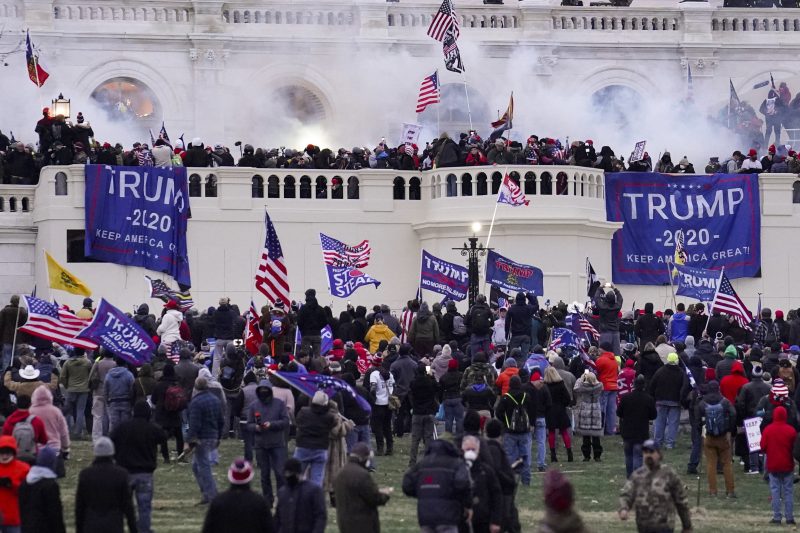There are two schools of thought when considering Donald Trump’s efforts to retain power after the 2020 election.
One holds that Trump was simply pushing the boundaries of legality, squeezing through cracks or uncertainties in the process to effect a result that blocked Joe Biden’s inauguration. Some of those who think this is a fair description of what Trump and his allies attempted also think it was warranted, given baseless concerns about election fraud or illegalities. Others simply think it was a clever effort to snatch victory from the jaws of defeat, like violating unwritten rules to win a sporting contest.
The other school of thought argues that Trump and his allies broke the law to subvert the transfer of power. This camp includes special counsel Jack Smith.
Once we overlap these groups with the Republican primary electorate, things get interesting. A lot of Republicans clearly think that Trump was simply working an angle, as he had done so many times in so many circumstances before. Others — clearly fewer — think that what he did was illegal. Some chunk of the likely 2024 primary electorate, though, sits in a weird position: agreeing that Trump broke the law in his efforts to remain president, but also supporting his bid to regain that position in January 2025.
On Wednesday, The Washington Post released data from a poll conducted by Ipsos in partnership with FiveThirtyEight. Included among the questions was one that teased out an aspect of the distinction drawn above: Would Republican primary voters rather have a party nominee who respected the rules and customs of elections … or one who would do whatever it takes to win?
About 13 percent chose the latter, 1 in 8. Nearly all the rest chose a nominee who respects those customs. But that means, given Trump’s position in the polls, that a significant portion of the group preferring a nominee who respects election rules also support Trump’s candidacy.
There are interesting patterns in the willingness of likely primary voters to endorse a candidate indifferent to the rules of running for office. Men say that they prefer a candidate who will do whatever it takes to win more than women. So do extremely conservative Republicans, a quarter of whom endorse a candidate who will set rules and customs to the side.
As the news-consumption habits of respondents shift toward the fringe, their support for ignoring election rules climbs. More than a fifth of those who get news from Newsmax, One America News and other right-wing outlets prefer candidates indifferent to election rules. Among those who watch network news, the percentage is far lower.
Interestingly, there isn’t a big gap in the views of those who say they are or are not considering the candidacy of Florida Gov. Ron DeSantis, the candidate who still sits at the top of the pack chasing Trump in the polls. But among those who say they are or are not considering Trump’s campaign, there’s a big divide. Nearly a fifth of those who say they’re considering him as a candidate also say they prefer someone who ignores the rules of running for office in favor of victory. Among those who aren’t considering him, almost no one prefers such a candidate. Which makes sense.
While that minority of the electorate who is indifferent to rules and customs is interesting, it’s probably more telling that so many Republicans express a preference for a rule-abiding candidate and also want Trump to be the 2024 nominee. This group almost certainly falls into the first school of thought articulated at the beginning of this article, those who think Trump was pushing against the rules to retain power, without breaking them. The former president and his allies have stoked this idea for years, in part recognizing that it is a preferable legal strategy to admitting that he’d broken the law. A lot of Republicans, it seems, accept the argument.
Or perhaps they prefer a candidate who abides by the rules but in the same way that Republicans voting in 2016 often preferred a morally upright candidate who had been married once and was a devout churchgoer. In the way that you might prefer your favorite brand of beer but will take what a restaurant has on tap.
What the poll reinforces, if nothing else, is that Trump’s approach to 2020 does not serve as much of an anchor on his 2024 bid. In case you were under the impression that it did.

